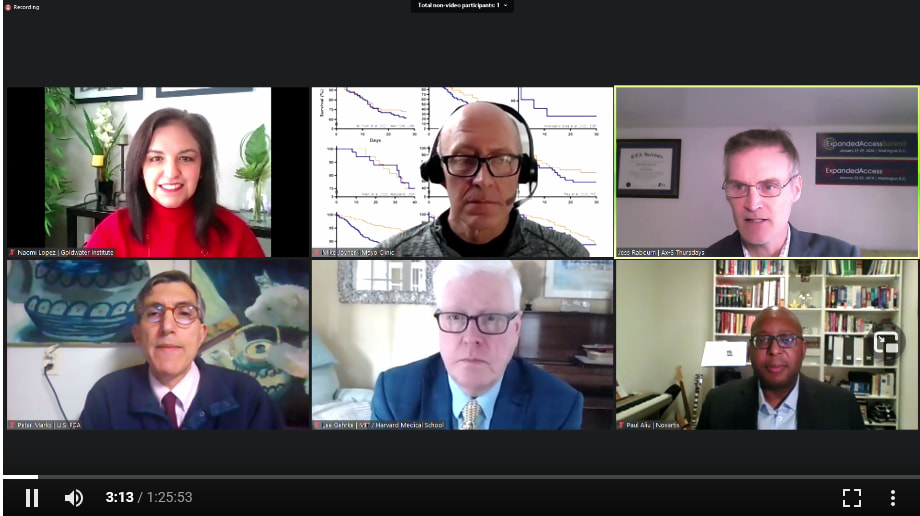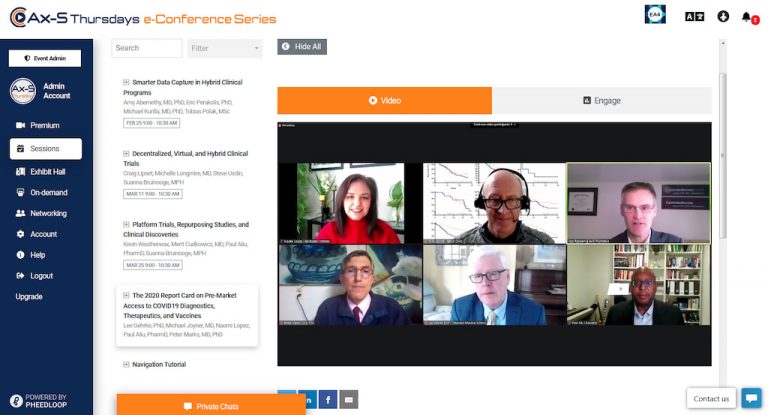On Thursday, February 11, 2021, a panel of Healthcare leaders answered an important question: How well have we utilized existing pathways to make new COVID-19 medicines available in healthcare prior to their full marketing approval? Different countries have their own versions of the “Emergency Use Authorization”, but there are also “Expanded Access Programs” which are treatment-use (or preventative- or diagnostic-use) trials for patients who cannot participate in traditional research trials and for larger numbers of patients than can be accommodated in the clinical research enterprise.
Here is a recap of the session:
- Naomi Lopez (Goldwater Institute)
- Paul Aliu, PharmD (Novartis)
- Peter Marks, MD, PhD (FDA)
- Michael Joyner, MD (Mayo Clinic)
- Lee Gerhke, PhD (MIT)
Naomi reminded us not to be afraid of concepts that seemed radical 5 years ago. The window has shifted. Industry has a new appetite for innovation. There is unprecedented alignment of interest for re-thinking the barriers between research and treatment.
Paul provided examples of differing regulatory landscapes faced by a global pharmaceutical company and examples of ways to maximize the opportunity in each. He also emphasized the value of the data that can be generated from early-access programs.

Peter reminded us that Expanded Access programs are not just for therapeutics. We have done very large Expanded Access programs for vaccines. In the case of COVID-19 vaccines, the scale and special circumstances of the pandemic made Emergency Use Authorization the favored pathway, however. There may not have been opportunities to do more Expanded Access in COVID-19 vaccines, but possibly yes in therapeutics.
Michael described the experience of coordinating the largest Expanded Access Program (EAP) in history, the 2020 treatment-use trial for COVID-19 convalescent plasma, which treated over 105,000 people. For scalable EAPs, we have to make it easy for both healthcare provider and the provider’s institution. Focus on the “last mile” and keep it simple.
Lee explained the special challenges of developing rapid antigen-based tests for coronavirus and other contagions. The need for inexpensive, rapidly deployable diagnostics is still unmet. Very few rapid tests have been able to achieve Emergency Use Authorization of similar level of accessibility, raising the question of diagnostic Expanded Access Programs for subgroups of the population with particularly great need for daily testing; e.g. law enforcement, education.

